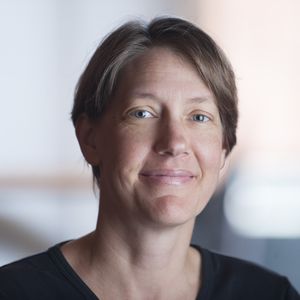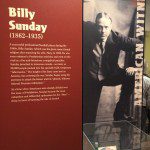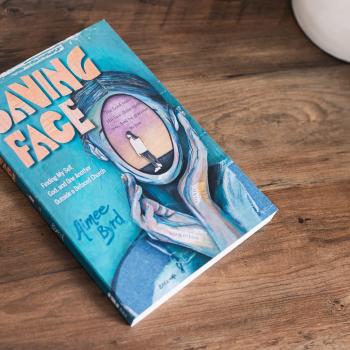Today I’m delighted to welcome my colleague AnneMarie Kooistra to The Anxious Bench. AnneMarie is a graduate of Calvin College and the University of Southern California and an expert in the history of prostitution in late 19th and early 20th century Los Angeles. Her classes at Bethel include a popular upper-division course on the history of sexuality in America, a requirement for the Gender Studies minor. In this guest post, AnneMarie reflects on academic freedom as a Christian college professor who teaches the history of gender and sexuality.
 In October 2015, the Atlantic Monthly carried a story about the ways in which sexual harassment policies were being used to “diminish” free speech on a variety of college campuses. The article claimed that compromised free speech was due, at least in part, to pressure from the Department of Education’s Office of Civil Rights, which has helped perpetuate the idea that “illegal sexual harassment extends to campus speech with any sexual content that anyone finds offensive.” Professors, consequently, have found themselves under attack to the extent that professors at Harvard are apparently “jettisoning teaching tools that make any reference to human sexuality.”
In October 2015, the Atlantic Monthly carried a story about the ways in which sexual harassment policies were being used to “diminish” free speech on a variety of college campuses. The article claimed that compromised free speech was due, at least in part, to pressure from the Department of Education’s Office of Civil Rights, which has helped perpetuate the idea that “illegal sexual harassment extends to campus speech with any sexual content that anyone finds offensive.” Professors, consequently, have found themselves under attack to the extent that professors at Harvard are apparently “jettisoning teaching tools that make any reference to human sexuality.”
As a person who both researches and teaches in the field of sexuality and gender within American history, I found the article interesting and yet not surprising. The refrain of sexual misconduct and/or sexual scandal on college campuses is by now rather commonplace. From my vantage point, the arguments surrounding academic freedom and sexuality are minor compared to the problems confronting students in their navigation of the treacherous concept of what passes for “consent” with regard to their sexual activities.
The Atlantic Monthly article noted that the harassment policy which seems to have diminished free speech has at its heart the goal of protecting students from exposure to ideas that make one uncomfortable and that such a goal is antithetical to education. It is unfortunate that even in the larger academic context, ideas surrounding sexuality and/or gender tend to be ones that are linked to creating a particularly uncomfortable situation. But it also makes me feel a little better about the peculiar context of talking about sexuality here at Bethel.
A few years ago, Bethel University had a conversation about a proposed Gender Studies minor. The pressure against the minor came not from the Department of Education’s Office of Civil Rights or from students but from a number of faculty who expressed skepticism about the minor. One colleague, for example, asked if it was possible that those working in the field really had the “academic freedom” to “work from within a framework of biblical sexuality, as Bethel understands it” — a reference, I presume, to Bethel’s Covenant for Life Together which claims that sexuality is one of God’s good gifts but states that “monogamous, heterosexual marriage” is the proper context for “sexual intercourse and other forms of intensely interpersonal sexual activity” and condemns pornography, sexually exploitative or abusive behavior, and sexual harassment.
 I think it is possible. While I certainly strive to be transparent about my own beliefs, preferences, and feelings about sexuality, I also believe my commitment to a true liberal arts education means that my students and I together confront ideas that make us uncomfortable. It is sometimes uncomfortable, for example, to acknowledge that in spite of Bethel’s commitment to a particular sexual ethic, Christians do not agree among themselves what “biblical sexuality” is. Views differ among individual Christians: by denomination, by culture, even by time period. Studying the sexual landscape of the past, knowing it too had its own pitfalls and complexity, makes us better equipped to enter into dialogue about how to approach the current sexual landscape — one that we share with a diverse group of people and communities, not just Christians who subscribe to Bethel’s interpretation of biblical sexuality.
I think it is possible. While I certainly strive to be transparent about my own beliefs, preferences, and feelings about sexuality, I also believe my commitment to a true liberal arts education means that my students and I together confront ideas that make us uncomfortable. It is sometimes uncomfortable, for example, to acknowledge that in spite of Bethel’s commitment to a particular sexual ethic, Christians do not agree among themselves what “biblical sexuality” is. Views differ among individual Christians: by denomination, by culture, even by time period. Studying the sexual landscape of the past, knowing it too had its own pitfalls and complexity, makes us better equipped to enter into dialogue about how to approach the current sexual landscape — one that we share with a diverse group of people and communities, not just Christians who subscribe to Bethel’s interpretation of biblical sexuality.
We do a great disservice to ourselves if we believe that silence and avoidance of uncomfortable topics or subjects will cause them to go away, and I’m grateful for the opportunity I have to engage in frank discussions with students about such topics. I am also grateful that the students taking my class seem to see the value of developing historical empathy for a range of views that don’t necessarily align with their own. Part of the success of the course, though, relies on what I think the original intention of the sexual harassment laws may have been: namely, to treat the people around you with respect.
Again, Bethel approaches this goal from a fundamentally different direction from the Department of Education. I doubt, for example, that the concept of Imago Dei appears in any government documents, but possibly we may be trying to create what could amount to a similar learning environment, a safe space for all people to learn together even while working through uncomfortable, even earth-shattering and heartbreaking ideas.
Because, really, as much as the world is beautiful, it is often, too often, one that breaks our hearts. And that is more than uncomfortable. It is tragic.
We won’t be better at coping with tragedy, however, by pretending it doesn’t exist.
This post is based on a talk presented at the 2016 Minnesota Undergraduate History Symposium and revised from a version previously published at AC 2nd.













